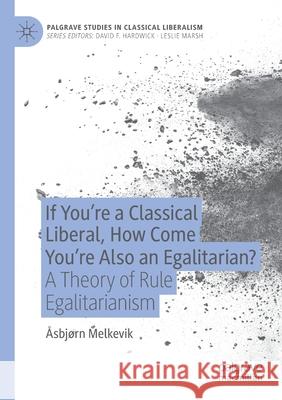If You're a Classical Liberal, How Come You're Also an Egalitarian?: A Theory of Rule Egalitarianism » książka
topmenu
If You're a Classical Liberal, How Come You're Also an Egalitarian?: A Theory of Rule Egalitarianism
ISBN-13: 9783030379100 / Angielski / Miękka / 2021 / 306 str.
If You're a Classical Liberal, How Come You're Also an Egalitarian?: A Theory of Rule Egalitarianism
ISBN-13: 9783030379100 / Angielski / Miękka / 2021 / 306 str.
cena 382,84 zł
(netto: 364,61 VAT: 5%)
Najniższa cena z 30 dni: 382,84 zł
(netto: 364,61 VAT: 5%)
Najniższa cena z 30 dni: 382,84 zł
Termin realizacji zamówienia:
ok. 20 dni roboczych.
ok. 20 dni roboczych.
Darmowa dostawa!
Kategorie:
Kategorie BISAC:
Wydawca:
Palgrave MacMillan
Seria wydawnicza:
Język:
Angielski
ISBN-13:
9783030379100
Rok wydania:
2021
Wydanie:
2020
Numer serii:
000827963
Ilość stron:
306
Waga:
0.43 kg
Wymiary:
21.01 x 14.81 x 1.85
Oprawa:
Miękka
Wolumenów:
01
Dodatkowe informacje:
Wydanie ilustrowane











